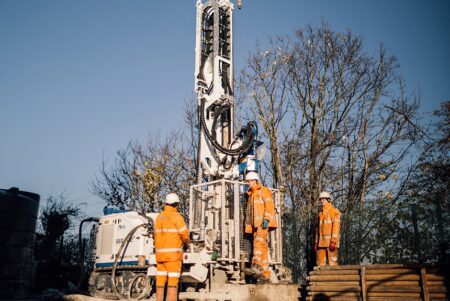Healthcare developers urged to consider ground source heat pumps for cooling

With the country experiencing a heatwave, and overheating a significant issue in high-rise, high-density healthcare developments, Power On is urging developers to consider the merits of networked ground source heat pumps to provide low-carbon heating and hot water as well as effective cooling for buildings.
Networked ground source heat pumps (NGSHPs) extract naturally-stored thermal energy from the ground, which is transferred to a discreet heat pump unit within each building.
Remarkably, this technology is also able to provide environmentally-friendly and extremely-low-cost cooling systems.
Neil Fitzsimons, managing director of Power On, explains: “With networked ground source heat pumps still being relatively new in this country, many people may not be aware that they can provide cooling too.
“But developers are in the perfect position to introduce this very-ecologically-sound and inexpensive way of providing cooling for high-rise developments.”
The positives of passive cooling
NGSHPs are able to provide heat in the winter as the ambient ground temperature is warmer than the air temperature and therefore can provide warmth when passed through a heat pump.
With the ambient ground temperature in the summer being cooler than the temperature inside the building, the same system can, therefore, be used for cooling by simply bypassing the heat pump in the warmer months.
Known as passive cooling, all that is required is a small circulation pump and fan to distribute the cool air around the building, which can be achieved at a fraction of the cost compared to traditional air conditioning.
Developers are in the perfect position to introduce this very-ecologically-sound and inexpensive way of providing cooling for high-rise developments
And, during the summer, any waste heat from the building can be transferred back into the network for higher heat pump operating efficiency in the winter.
David Broom, new-build partnerships director at ground source heat pump manufacturer, Kensa, said: “Passive cooling is a highly-effective feature that’s entirely unique to ground source heat pumps.
“It provides much-needed comfort in the summer, uses very little energy, and does so without a bulky outdoor air conditioning unit.
“As UK summers become longer and hotter, this capability offers a sustainable way to cool buildings that are increasingly at risk of overheating.”
Active cooling is also possible with NGSHPs, where the heat pump operates like a refrigerator, absorbing the heat from the building and releasing it to the ground.
While this is more energy intensive than passive cooling, it is still more efficient than traditional air conditioning.
More than meeting regulatory requirements
High-rise and high-density developments such as hospitals are particularly susceptible to overheating for several reasons. These include the significant amounts of glazing often used in construction and also the internal heat gains from occupants, equipment, and lighting, which all contribute to the overall temperature within the building.
Windows may also not be fully opening due to safety concerns, noise or air pollution, and limited shade at height and in urban areas can also be a factor.
As UK summers become longer and hotter, this capability offers a sustainable way to cool buildings that are increasingly at risk of overheating
Not only do NGSHPs provide cooling, they also do not contribute unwanted heat to the building.
Unlike combustion-based heating systems like gas boilers, NGSHPs do not burn fuel to produce heat. They are designed to transfer heat, not generate it, extracting heat from the ground and moving it to the building’s heating system.
Fitzsimons concludes: “Networked ground source heat pumps are a low-carbon, low-cost innovation, ideal for high-rise and high-density developments.
“Their cooling capabilities are almost a by-product of the heating and hot water solution, making them a win-win option for the developer and operator alike.”
